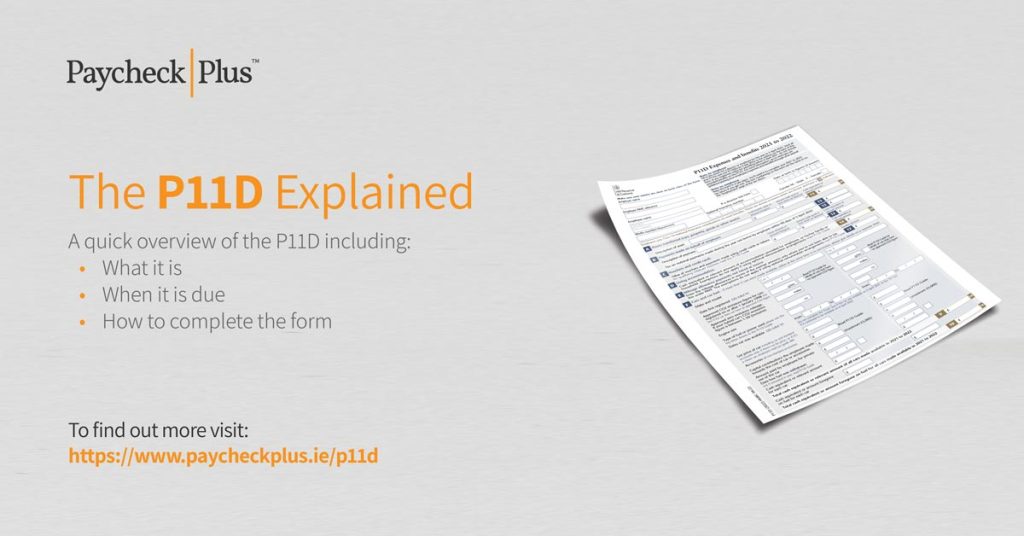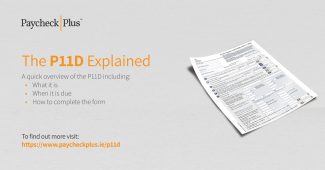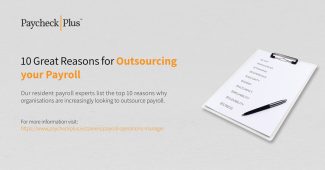
P11D & P11D(b) – What You Need to Know
P11D & P11D(b) submission 2023 – What You Need to Know
As an employer in the United Kingdom, it is crucial to be aware of your obligations when it comes to reporting benefits and expenses provided to your employees. The P11D and P11D(b) forms play a central role in this process, requiring accurate reporting to the HM Revenue and Customs (HMRC). In this blog, we will delve into the benefits and expenses that must be reported annually, providing an overview of the key items, their associated benefits, and the potential expenses incurred.

Understanding P11D and P11D(b): Before diving into the specifics, let’s briefly understand what P11D and P11D(b) forms entail. The P11D is a tax form used to report all taxable benefits and expenses that an employer has provided to their employees throughout the tax year. On the other hand, the P11D(b) form is used by employers to report the total amount of Class 1A National Insurance contributions (NICs) due on the taxable benefits provided.
Reportable Benefits:
- Company Cars: If an employee has access to a company car that is available for private use, including fuel, this must be reported. The benefit is calculated based on factors like the car’s value, CO2 emissions, and fuel type.
- Private Medical Insurance: Premiums paid for private medical insurance provided to employees should be reported as a taxable benefit.
- Loans: If an employee receives a loan from their employer with a balance exceeding £10,000 at any point in the tax year, it must be reported.
- Living Accommodation: Providing living accommodation, such as a house or apartment, is a taxable benefit. The value of the benefit is typically the annual rent paid or the property’s value if owned by the employer.
- Mileage Allowances: If an employee receives mileage allowances exceeding the approved HMRC rates for business travel in their private vehicle, the excess amount must be reported.
- Childcare Vouchers: Employers offering childcare vouchers to their employees may need to report the vouchers’ value if they exceed the exempt amount set by HMRC.
- Relocation Expenses: If an employer pays for an employee’s relocation costs exceeding HMRC’s exempt limits, these expenses must be reported.
- Assets Transferred: Reporting is required for assets transferred to an employee, such as computers, mobile phones, or other equipment, with a significant personal use component.
Expenses Covered by P11D(b): In addition to reporting taxable benefits, the P11D(b) form is used to declare the Class 1A NICs payable by the employer on these benefits. The expenses covered include:
- Company Cars: The Class 1A NICs liability on the provision of company cars, including fuel, is calculated and reported.
- Other Benefits: The total Class 1A NICs liability for all other benefits provided, such as medical insurance, loans, and living accommodation, should be reported.
The deadline for filing P11D and P11D(b) forms is July 6 following the end of the tax year (e.g., this July for the 2022/23 tax year). Late submission of P11D forms results in penalties of £100 for every 50 employees per month. The resulting Class 1A NICs must be paid by July 19, and late payments will incur interest charges. Failure to file the P11D(b) form on time, which outlines the Employer’s Class 1A NICs payable on the benefits in kind provided, triggers a penalty. HMRC automatically imposes a £100 penalty for each 50 employees for every full month that the return is overdue after the deadline.
Additionally, if the NICs due are not paid by August 22 (30 days after the due date), HMRC adds a 5% penalty to the outstanding amount. This penalty increases to 10% after 6 months and 15% after 12 months. Furthermore, HMRC charges interest on late payments of any taxes.HMRC may also request a penalty of £300 per late-submitted P11D, which must be done through the First-tier Tax Tribunal (FTT). If the FTT agrees to impose such penalties, an additional £60 per day can be charged until the employer rectifies the situation.
Businesses have the option to payroll their benefits in kind instead of submitting individual P11Ds for each employee. This approach ensures real-time tax deduction on benefits and can help minimize confusion related to PAYE coding changes. Payrolling benefits in kind can significantly reduce the reporting requirements of P11Ds, mitigate risk, and save valuable administrative time for the business. Except for beneficial loans and accommodations, all other benefits can be payrolled. Employers can choose to payroll all benefits or specific ones. Employers must register to payroll their benefits before the start of the tax year through their HMRC account and indicate the benefits they wish to include in payroll. Failing to do so will still require employee P11D forms. In cases where benefits are successfully payrolled, the employer must still submit the declaration form P11D(b) to report the due Class 1A NICs. Businesses considering registering for payrolling benefits should start planning in advance for the 2024/25 tax year to ensure all necessary administrative tasks are completed.
Conclusion:
Accurate reporting of benefits and expenses to HMRC through the P11D and P11D(b) forms is essential for employers in the UK. Understanding the various benefits that need to be reported, such as company cars, private medical insurance, loans, and more, ensures compliance and avoids penalties. It is important to consult HMRC guidelines, seek professional advice if needed, and maintain thorough records to facilitate the reporting process effectively. By fulfilling these obligations, employers can fulfill their legal requirements while supporting a transparent and accountable approach to employee compensation.
Paycheck Plus, first for International HR & Payroll Outsourcing
Whether you are dealing with Irish, UK or International payrolls, processing in-house can be a complex and time-consuming operation. Employee queries and updates coupled with changes in employment statuses can make maintaining payroll compliance challenging for even the best intentioned organisation.
When legislative hurdles, employee relations issues, recruitment and retention goals are added to the mix it’s easy to see how HR and Payroll challenges can take its toll on a business’ internal payroll resources.
At Paycheck Plus, our award winning human resource and payroll teams can help you manage your workforce, providing a scalable HCM solution that can grow as your business develops. We provide International HR and payroll outsourcing services tailored specifically to our your needs.
To find out more make an enquiry or call us on +353 (0) 1 905 9400.

